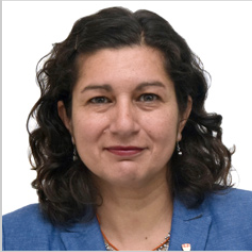Ritu Verma

Areas of interest: anthropology of development, political-ecology, Bhutan, Kenya, Madagascar, East and Southern Africa, Himalayas, Pacific Islands
About
My ethnographic research has been predominantly in the Greater Himalayas and East Africa, with particular focus on the anthropology of development-political ecology nexus. I have examined the various apparatuses of development in the Central Highlands of Madagascar – conceptual, institutional, social – that shape agriculture, infrastructure and “women’s” projects, encounters and life-worlds in Aidland. I have explored the effects of hegemonic development policies and practices on gender, land and agricultural livelihood strategies, resistance and micro-politics in Western Kenya.
More recently, I have developed and led research projects in Bhutan. One research project focuses on transdisciplinary research focusing on climate change, organic agriculture, holistic food systems, gender and wellbeing in the highlands, in partnership with the College of Natural Resources – Royal University of Bhutan, and Out of the Box, with funding from Canada’s International Development Research Center. A second academic project aims to develop the anthropology of Bhutan and advance anthropology as a discipline, in partnership with the College of Language and Culture Studies – Royal University of Bhutan, University of California Los Angeles, Out of the Box, with funding from the Wenner Gren Foundation. I have also been carrying out research over the past decade on development alternatives that challenge GDP-centric frameworks and practices from a degrowth, wellbeing/happiness and decolonial perspective – with particular focus on Bhutan’s Gross National Happiness.
Some of my work straddles the interface of academic and applied anthropology, extending to applied anthropological and activist work that focuses on the effects of the climate emergency, cultural practices and indigenous knowledge of highland pastoralists, land rights, and moving beyond GDP – spanning East and Southern Africa, the Himalayas, the Pacific Islands and globally.
Recent Publications:
Verma, R. and Ura, K., 2022, Gender Differences in Gross National Happiness: Power, Inequality and Neutrality in Bhutan, World Development, 150: 105714.
Verma, R. 2020, The Role of Anthropology in Climate Change Research and Policy in Bhutan: Reflections from a Carbon Negative Country, American Anthropologist, 122(4): 947-952.
Verma, R. 2020, The Eight Manifestations of Gross National Happiness in Bhutan: Multiple Meanings of a Development Alternative, Journal of Bhutan Studies, Winter 2020, 41: 1-33.
Verma, R. 2017, SDGs: Value-Added for GNH? Challenges and Innovations of a Development Alternative from a Socio-Cultural Lens, Druk Journal, 3(1): 36-47.
Verma, R. 2017, ‘Gross National Happiness: Meaning, Measure and Degrowth in a Living Alternative to ‘Development’’, Journal of Political Ecology, Special Issue on Culture, Power, Degrowth, 24: 476-490.
Verma, R. and Agrawal, A. 2017, Natural Resource Governance at Multiple Scales in the Hindu Kush Himalayas, ICIMOD Working Paper, Kathmandu: ICIMOD.
Metz, T., Hiratra, J. and Verma, R. 2015. ‘Good Governance: How Can Politics Promote Wellbeing?’, Druk Journal, 1(2): 90-99.
Verma, R. 2014, ‘Business as Unusual: The Potential for Gender Transformative Change in Development and Mountain Contexts’, Mountain Research and Development, 34(3): 188-196.
Verma, R. 2014, ‘Land Grabs in East and Southern Africa, So What’s New?: Historical Continuities, Political Disconnects and Gender Dispossessions’, Feminist Economics, 20(1): 52-75.
Verma, R. 2011, ‘Intercultural Encounters, Colonial Continuities and Contemporary Disconnects: An Ethnography of Development Practitioners in Madagascar’, Inside the Everyday Lives of Development Workers: The Challenges and Futures of Aidland, Fechter, A-M. and Hindman, H. (eds), Sterling VA: Kumarian Press, pp.59-82.
Verma, R., Russell, D. and German, L. 2010, ‘Anthro-Apology? The Clash Between Inter-Disciplinary Collaboration and In-Depth Socio-Cultural Research in the CGIAR’, in Beyond the Bio-Physical: Knowledge, Culture and Politics in Natural Resource Management, German, L., Verma, R. and Ramisch, J. (eds.), New York: Springer, pp.257-282.
Verma, R. 2008, ‘At Work and at Play in the ‘Fish Bowl’: Gender Relations and Social Reproduction among Development Expatriates in Madagascar’, Gender and Family Among Transnational Professionals, Coles, A. and Fechter, A.M. (eds.), Routledge: London and New York, pp.171-192.
Selected Books and Monographs:
Verma, R. and Wangdi, C. 2018, Meaningful and Equitable Participation in Local Climate Change Adaptation and Water Governance in Rural Bhutan, TCSRD Monograph 1, Thimphu: Tarayana Centre for Social Research and Development.
Verma, R. and Khadka, M. 2016, Gender and Pastoralism in the Rangelands of the Hindu Kush Himalayas: From the Margins to New Heights, Kathmandu: ICIMOD.
Verma, R., Nellemann, C. and Hislop, L. 2011, Women at the Frontline of Climate Change: Gender Risks and Hopes, Arendal: UNEP Grid Arendal.
German, L., Verma, R. and Ramisch, J. 2010, Beyond the Bio-Physical: Knowledge, Culture and Power in Natural Resource Management, New York: Springer.
Verma, R. 2001, Gender, Land and Livelihoods In East Africa: Through Farmers’ Eyes, Ottawa: IDRC.